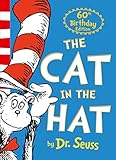Seagrass Munching Bonnetheads Indicate Sharks Eat Their Greens Too!
Language
Reading Level
Listen to Article

Mention the word shark, and the first image that comes to mind is that of a ferocious carnivore circling helpless prey. However, while the bonnethead enjoys meat as much as any other shark, it seems to love its greens as well – so much so that about 50 percent of the shark’s diet is plant-based.
Samantha Leigh, a Ph.D. candidate at the University of California, became interested in the sharks' eating habits in 2017 after hearing reports of the fish chomping down on seagrass, the flowering marine plant that covers ocean floors in some coastal waters. “It has been assumed by most that this consumption was incidental and that it provided no nutritional value,” she said. “I wanted to see how much of this seagrass diet the sharks could digest because what an animal consumes is not necessarily the same as what it digests and retains nutrients from.”
To investigate if the sharks were true omnivores, Leigh, along with researchers from the Florida International University in Miami, planted seagrass in the lab. As it started to grow, they added sodium bicarbonate powder made with a distinct carbon isotope to the water. As the liquid was absorbed, it gave the greens an easily identifiable chemical signature.

The researchers then fed a group of five captive bonnetheads a diet that comprised 90 percent seagrass and 10 percent squid for three weeks. The sharks all gained weight indicating they were getting the necessary nutrients from the plants. To confirm their theory, the scientists conducted a series of experiments. The initial tests proved the fish was able to digest the seagrass using stomach enzymes and break down its components – starch and cellulose. The bigger question, however, was if the nutrients were being absorbed by the fish. Sure enough, further tests indicated high levels of the carbon isotope, which the scientists had mixed inside the water, in the sharks’ blood and liver tissue. The indisputable proof that the digested plant food was being used to help the sharks grow and develop, led Leigh to declare, “The bonnethead shark is the first known omnivorous species of shark.”
The team, who published their findings in the journal Proceedings of the Royal Society B on September 5, 2018, believe their discovery has put into doubt everything scientists have believed about the feeding habits of both marine and land animals. Leigh says, “We should be taking a closer look at what animals are consuming, digesting, and excreting in their environments around the world because it impacts habitats that we depend on as well.” The researcher adds, “This has implications for fragile and crucial seagrass meadow habitat management. From now on, researchers who look after such habitats will have to factor in that bonnetheads not only eat the plants but can make seagrass as much as 60% of their diet.”

Though the bonnethead is the first omnivore shark to be discovered, it may not be the only one. Leigh quips, “If other species are taking omnivorous digestive strategies as well, then we’d need to reevaluate their role as top predators.” Maybe the next “Jaws” sequel will keep this discovery in mind and include a salad-eating shark as well!
The shovel-shaped bonnetheads, which average between 30 to 48 inches in length and weigh up to 24 pounds, are the second smallest sharks in the hammerhead family. They can be found in estuaries and shallow bays, with mud or sand bottoms, in the tropical and subtropical waters on both coasts of North America - all the way from North Carolina to southern Brazil, including the Caribbean and the Gulf of Mexico, and from Southern California to Ecuador. Prior to the latest discovery, researchers believed the fish, among the few shark species not on the endangered list, primarily ate crustaceans, clams, octopuses, and small fish.
Resources: Guardian.com, Independent.co.uk, NationalGeographic.com

Get the Workbook for this article!
Workbook contains: Article, Reading Comprehension, Critical Thinking Questions, Vocabulary in Context (+ answers), Multiple Choice Quiz (+ answers), Parts of Speech Quiz (+ answers), Vocabulary Game (+ answers)Cite Article
Learn Keywords in this Article
509 Comments
- icywolfover 1 yearI love sharks they are so interesting but they are so cool this article is the best.
- ash_151515about 2 yearseveryone has to eat their greens! 😊
- unknown_user14about 2 yearsIncredible!
- adroit_avimimusabout 2 yearsVery interesting! They looked so small in the cover picture when I first saw it!
- gold3nglarealmost 3 yearsIntriguing!
- ggmickeyaylaover 3 yearsthey are so fast
- Jeffover 4 yearsSharks eat greens to cool
- Miaover 4 yearsAmazing!
- julian dover 4 yearssharks are literly life for me so this is epic
- mcfredbearover 4 yearsthis is interestanté (thats Spanish for interesting)




